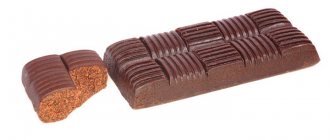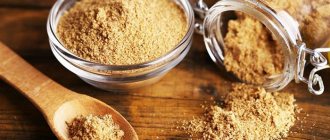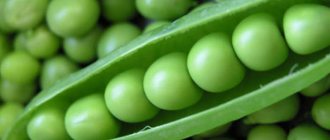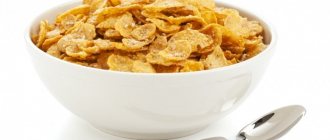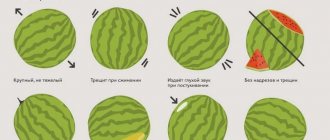Our body is two-thirds water. Therefore, we need it as much as air and food. A nursing mother usually has an increased need for fluid. But drinking plain clean water is not as tasty and pleasant as carbonated water. In this material we will consider the question of whether a nursing mother can drink carbonated water.
Carbonated mineral water from natural sources has been consumed since ancient times. In the modern world, water is artificially carbonated. The carbon dioxide included in the composition acts as a preservative, preserving the beneficial properties of the mineral water. The amount of it in drinks may vary. But in accordance with accepted standards, it should not be higher than 10 g/l. That is, approximately 1% of the total volume.
Is sparkling water good or bad?
There is an opinion that it is useful. In particular, it strengthens the walls of the stomach and intestines. With reduced secretion of gastric juice, it helps solve this problem. You can often find advice to prepare infusions of medicinal herbs with soda. Supposedly, this enhances their therapeutic effect. Natural carbon dioxide gives water antibacterial properties. Carbonated water quenches thirst well, refreshes, and is easy and pleasant to drink.
But artificially introduced carbonic acid can cause harm to our body. Firstly, it irritates the mucous membrane of the stomach and intestines, therefore it is contraindicated for people with gastrointestinal diseases. Secondly, it can provoke gastritis. Thirdly, carbon dioxide has a destructive effect on tooth enamel.
It was said above about sparkling mineral water. But drinks are also very popular - lemonades, colas, etc. In addition to carbon dioxide, they contain sugar or its synthetic substitutes, flavorings, flavorings, and preservatives. Naturally, they bring no benefit to the body. Moreover, they can cause the development of allergic and other diseases.
It has been scientifically proven that sugary carbonated drinks often lead to the development of obesity. they are tasty, easy to drink and a person can drink 1-2 liters of a sweet drink without noticing. And they contain a considerable amount of calories. Thus, with regular use, all this is deposited in the fat layer. In addition, large amounts of sugar increase our blood glucose levels and insulin production. This may be a prerequisite for the development of diabetes. Phosphoric acid contained in industrial carbonated drinks is also dangerous. It has the ability to leach from our bones and increase their fragility.
Can a nursing mother have sparkling mineral water?
Drinking mineral water during breastfeeding will not cause harm if you control its quantity. The main drink during lactation should still be clean water, as well as natural teas, compotes, fruit drinks, etc. They are really useful. A nursing mother can drink her favorite mineral water occasionally. Then it won't cause any harm.
But it’s better to avoid sweet drinks like cola altogether. They are of little use even to a healthy adult. And for a child who receives a whole cocktail of flavorings, sweeteners and dyes in his mother’s milk, this can cause serious health problems.
It is imperative to monitor how your baby reacts to soda. Some babies experience bloating and increased gas production. As a result, he behaves restlessly and feels unwell.
So, nutritionists and pediatricians do not categorically prohibit carbonated mineral water for a nursing mother. But you can drink it in small quantities and occasionally. Follow these tips and stay healthy!
The general conclusions are as follows:
Mineral water is on the list of prohibited products during breastfeeding, the use of which during breastfeeding is contraindicated due to the high likelihood of allergic reactions from the baby’s body. It is better to refuse for the first year of lactation. Consumption of this product even in small quantities can be dangerous for the baby.
When breastfeeding, a woman needs to carefully choose the foods and drinks she consumes, since only she is responsible for the health of her child.
Can a nursing mother have lemonade, since the gases it contains promote fermentation processes in the intestines? Even without this, a newborn is often tormented by bloating and colic, since his intestines still have weak peristalsis.
To maintain lactation, a woman needs to drink 2-3 liters of fluid per day, this is quite enough. And it should be regular drinking water, not carbonated lemonade. All carbonated drinks without exception are strictly prohibited - pediatricians are extremely categorical about this.
Carbonated lemonade contributes to gas formation in the gastrointestinal tract, and also significantly worsens the quality of mother's milk.
Store-bought lemonade contains large amounts of sugar, acid, dyes, flavors and preservatives.
Everything a mother eats and drinks during lactation is passed on to her baby. As a result, carbonated lemonade causes colic, flatulence and indigestion in the baby. When breastfeeding, carbonated lemonade is very harmful to the baby's digestion.
It is not for nothing that doctors have a sharply negative attitude towards drinking carbonated lemonade during pregnancy.
Therefore, a nursing mother needs to carefully plan her menu, thinking first of all about her baby.
The chemical composition of lemonade against a newborn
- The most basic property of carbonated lemonade is the ability to cause belching, bloating, flatulence and the resulting pain in the epigastric region.
- The huge amount of harmful substances present in store-bought drinks turns it into a chemical mixture that is extremely dangerous to health. These harmful substances in full will pass into breast milk, and from it to the baby, and his body will certainly react.
- Carbonated lemonade also contains a large amount of acid - malic, citric and phosphoric. And these acids can wash away calcium, which is vital for the formation of bone tissue, which can lead to frequent fractures and even rickets. You can look at the codes of the acids included in lemonade on the drink labels - citric acid is designated as E330, and orthophosphoric acid is designated E338.
The body of an adult may be able to cope with such a mixture of “harmful things,” but the delicate, still imperfect stomach and intestines of a baby will certainly suffer.
Another caveat is that carbonated lemonade is a high-calorie drink. If a nursing mother wants to get into shape faster after the birth of her baby, lemonade should be completely excluded from the diet.
Soda while breastfeeding
articles:
During lactation, every woman should be very careful about the choice of drinks consumed. An infant has weak intestinal motility and is often tormented by colic and bloating. Therefore, a nursing mother should plan her daily menu carefully and thoughtfully.
The consumption of certain foods and drinks in the diet is strictly prohibited by specialists. These drinks include any lemonades and even regular sparkling water. The fact is that soda while breastfeeding is very harmful to the baby’s digestion. Even in the maternity hospital, the doctor always advises the mother to adhere to a reasonable diet in the first three months.
Therefore, it is necessary to take care of the baby’s well-being by planning your diet correctly during lactation.
Properties of the drink and harm from drinking soda
Any type of soda, to one degree or another, provokes gas formation in the digestive tract. Drinking carbonated drinks impairs the quality of breast milk. Every nursing mother should consider the benefits and harms of the drinks and foods she consumes. Carbonated water has no value for the body.
It contains: • high amounts of sugar; • preservatives; • acid; • flavors; • harmful dyes. It is important to remember that everything that the mother eats is passed on to the baby. Any carbonated drink causes in an infant: • flatulence; • abdominal pain; • worsens the baby’s condition with physiological colic; • indigestion.
So, there is absolutely no benefit in soda. Various lemonades are saturated with dyes, preservatives, harmful substances, and flavors. The digestive organs of an adult are able to cope with such harmful liquid. But not the weak stomach and intestines of a baby. It’s no wonder that doctors also prohibit drinking soda during pregnancy.
What are the consequences of drinking soda?
The main property of the drink is its ability to cause bloating. The large amount of preservatives and concentrates contained in soda turns the liquid into a kind of chemical cocktail. As a result, the baby’s body will certainly react to harmful substances in breast milk. Another feature of the carbonated drink is its high acid content. Any type of this liquid includes citric or malic acid. Some lemonades may also contain phosphoric acid. It has been proven that people who drink drinks containing this acid suffer from many diseases. The fact is that phosphoric acid leaches calcium from bone tissue. As a result, this leads to weakening of bones, the development of osteoporosis, rickets, and frequent bone fractures. Sometimes, instead of the name of the acid included in the drink, its code is indicated in numbers on the label. You should know these codes - phosphoric acid is designated E338, citric acid is designated E330. The drink is also high in calories. These calories are very easily absorbed by the human body. If a mother wants to quickly adjust her weight after the birth of a child, lemonades must be completely excluded from the diet.
Safe refreshing drink: recipe
Of course, various types of lemonade, Coca-Cola and other carbonated drinks are strictly prohibited while breastfeeding.
To quench your thirst, a nursing mother can try making herself the following natural and safe drink: • 1.5 liters of pure water; • orange/lemon/lime slices; • a pinch of sugar and salt; • 1 teaspoon ginger juice.
All components must be placed carefully. The prepared drink perfectly quenches even the strongest thirst and is not at all dangerous for babies.
Drinking mineral water
The composition of breast milk with proper nutrition of the mother is ideally balanced for the health of the baby. As the baby grows, breast milk also changes. Breast milk contains 85% water. It replaces both food and drink for the baby.
The quality of milk is affected by any liquid a woman consumes. Mineral water is extracted from underground sources. It contains the original composition of all minerals.
However, some pediatricians note that the enhanced mineral composition of such liquid can negatively affect kidney function. Therefore, a nursing mother can drink bottled mineral water only in isolated cases and in limited quantities.
Naturally, you can only drink non-carbonated mineral water within reasonable limits. Carbonated mineral water can be drunk in rare cases and not earlier than the baby is 4 months old.
Expert advice
When forming her daily diet, mother should drink natural juices, weak and unsweetened tea, and regular purified drinking water. When lactation, it is important to take into account the individual characteristics of the body, as well as your well-being.
Many young mothers note that they drank soda while breastfeeding, and nothing bad happened to their babies. However, it is better to listen to the advice and recommendations of doctors than to reviews on numerous forums. In each individual case, the baby's reaction to a carbonated drink will be different.
A young mother needs to have a reasonable understanding of the harm that she causes to her baby by drinking soda or mineral water. Of course, it is better not to create unnecessary problems and not harm the child’s well-being. Even experts do not allow everyone to drink juice.
If you want to feed your baby breast milk, you should definitely follow certain rules. Along with the first meal, the baby's digestive organs begin to colonize various bacteria. During the development of a child, it is important that the microflora of the baby’s stomach and intestines is formed correctly.
Mother's milk is always sterile and complete nutrition. Drinking harmful drinks will have an extremely negative impact on the further development of the child’s organs. It is breast milk that activates the baby's peristalsis and facilitates bowel movements. The health of the baby depends on the quality of mother's milk.
Latest materials in the section:
Breastfeeding isn't just good for your baby
Breastfeeding is rightfully considered the healthiest nutrition for a baby; it is a priceless gift from a mother to her child. Everything you need to know about the benefits of breastfeeding for...
What to do to stop breast milk
Breastfeeding brings great pleasure to women, because it creates special contact between mother and baby. But the main goal of providing a child with natural food is to strengthen...
Ibuprofen while breastfeeding
As you know, the mother’s condition has a strong influence on the child. Therefore, pregnant women need to be careful when planning their diet and choosing medications, as they...
Source: https://birth-info.ru/161/Gazirovka-pri-grudnom-vskarmlivanii/
Lemonade for nursing mothers: should you listen to reviews on forums?
Some carefree mothers say that they drank carbonated lemonade, and everything was fine with their babies, nothing happened. But it is advisable for you to listen to the recommendations of pediatricians, and not to reviews on forums. After all, the reaction of each baby in each specific case will be different.
Just imagine the harm that your frivolous consumption of harmful drinks can cause to a little person. It is better not to spoil your child’s health and not create unnecessary problems for yourself and him.
Together with breast milk, with the baby’s first food, beneficial bacteria begin to populate his digestive system. At this moment, it is important that the microflora is formed correctly, and the use of harmful drinks, such as carbonated lemonade, negatively affects this process.
Remember that the future health of your baby depends on the quality of breast milk.
What kind of lemonade can you drink during breastfeeding?
A nursing mother can drink lemonade - but it depends on what kind. We offer to prepare a wonderful refreshing homemade drink - tasty, healthy, natural and perfectly quenches the thirst of a young mother.
How to make lemonade for a nursing mother
- Boiled chilled water – 1.5 liters;
- Slices of orange, lime, lemon - to taste;
- Sugar – 1 pinch;
- Salt – 1 pinch;
- Ginger juice – 1 teaspoon.
Mix everything thoroughly. This drink is not dangerous for the baby and perfectly quenches the thirst of a nursing mother.
This always seemed strange to me - after all, substances enter milk from the blood, and not from the mother’s stomach :)
Just in case, read:
Nutrition for a nursing mother. Among the persistent myths about breastfeeding, the most frequently repeated is the myth about a special diet for a nursing mother. Many women, on the advice of “well-wishers,” sit on a strict diet throughout the entire period of breastfeeding, not allowing themselves a single piece of fried or, say, salty food. The situation is further aggravated by the fact that nutritional recommendations for nursing mothers, now distributed in maternity hospitals and children's clinics, were drawn up against the backdrop of a sharp increase in the number of allergies in young children. From the first days of feeding, a nursing mother begins to be restricted as if she already suffers from a hereditary food allergy and will definitely pass it on to her child. However, in fact, such cases do not occur very often, and food allergies in the form of diathesis more often occur in artificially-bred children rather than infants. Therefore, an ordinary average woman does not have to adhere to such strict rules. So what should we be afraid of eating while breastfeeding? Imaginary dangers During breastfeeding, a woman’s diet may be no different from her usual diet. Since pregnancy, childbirth and breastfeeding are natural physiological processes, their success cannot be fundamentally related to a woman’s diet. Indeed, not a single mammal, be it a goat, a gorilla or a wolf, has ever changed its diet after giving birth! In this sense, a person who belongs to mammals is not much different from them. Therefore, a nursing mother can eat the same way as she ate during pregnancy. But are pregnant women also advised to follow a diet? Of course, they advise that food should be varied, nutritious, contain more natural products and less chemicals. Sorry, but these recommendations can be given to any person who has begun to think about their diet. Perhaps pregnancy is a reason to think about healthy eating and give up some of your habits. But it is worth refusing and limiting yourself only to the extent that a woman is ready to give it up forever. It is much more important to take care of variety, eating all foods and focusing on acute food desires. You can eat the same way during breastfeeding. But what about foods that can make a child swell? The list of such products includes cabbage and black bread, all legumes and much, much more. In fact, there is no direct connection between what the mother eats and the composition of the milk. Milk is a liquid of a very complex composition, the concentration of each component in it is determined by the internal mechanisms of lactation. Milk is synthesized from blood and lymph components, and not from the contents of the mother's stomach. Only artificial food additives, such as chemical dyes, or drugs, enter breast milk unchanged, and the concentration of some of them is comparable to the concentration in the mother’s blood, while others are much lower. No cabbage gets into milk and therefore cannot make a child “fart” from it. Then what happens when a child actually reacts to a product? In half of the cases, an impartial assessment of the situation (in particular, repeating the mother’s feeding of a suspicious dish a week later) shows that there was no reaction, the child was reacting to something else, for example, a change in the weather. In other cases, there really is an individual reaction to the product, not in the child, but, above all, in the mother. We do not digest all foods equally well. There are foods that cause heartburn, flatulence, weaken, and strengthen a mother. Depending on the strength of the reaction, certain changes occur in the mother’s blood, some of which may affect the composition of the milk. In this case, the child may or may not respond to these changes. Each mother-child pair is individual. Perhaps after some time the mother will discover that when eating some product, for example, cabbage, her child becomes more gassy or has trouble sleeping. As a rule, there is only one such product or only two, and the same mother may have different children react to different products. It is very difficult to predict in advance what kind of product it will be. For example, I regularly meet mothers whose child reacts inappropriately not to a product, but to a certain recipe, for example, meat stewed with garlic or cabbage stewed with mushrooms. It is unwise to remove the entire list from the diet in advance, because this can greatly impoverish the diet of a nursing mother. Therefore, ordinary observation, trial and error, is more competent. Perhaps the baby will not react at all to cabbage, but will force the mother to limit the consumption of beets or bean soup. But what to do with products that supposedly dramatically change the taste and smell of milk? These usually include onions, garlic, radishes, cauliflower, pungent-smelling spices, etc. Traditional recommendations for the last century recommended that nursing mothers exclude them from their diet completely and use them during weaning. As practice has shown, all this is nothing more than fiction. Such products may affect the taste and smell of milk, but the children’s appetite and the frequency of breastfeeding do not change. To confirm this fact, the following experiment was conducted in England: they collected a list of 2 dozen such products, fed them to mothers and observed how the frequency of sucking and the volume of milk sucked by the child changed, depending on what his mother ate or drank. It turned out that of all the “suspicious” foods, only 2 affected the volume of sucked milk. If mothers ate garlic, then the children sucked milk... more, not less, they seem to like the pungent smell of garlic! If mothers drank strong alcoholic drink, then the children sucked sluggishly and could refuse to suck at all. So from the entire list of “bad-smelling” foods, there remains... alcohol, which, I am sure, the nursing mother reading this magazine will not eat. Thus, we repeat once again, the diet of a nursing mother should not differ in any way from her diet during pregnancy. A special diet may be followed in special cases when the child’s mother is severely allergic or the family is on poor nutrition. The dangers are real - allergies If the mother or father of the child suffers from allergies, this especially applies to the mother, then the woman should be more careful about her diet. The baby can be negatively affected not only by the mother's food allergy, but also by allergies to odors, dust, cat hair, poplar fluff, etc. In this case, the child may have a tendency to diathesis, which in some cases manifests itself quite sharply literally in the first 2 months of life. Of course, the doctor will be the best assistant for mom here. If this is a homeopathic doctor, his treatment will not cause additional allergies in the baby, and the results are simply magical. However, every mother who finds herself in such a situation should know basic safety rules. So, in children predisposed to allergies, diathesis can be caused by the following foods: citrus fruits: lemon, orange, tangerine, grapefruit; strawberries, raspberries, sea buckthorn; foreign protein: beef and dairy products, fish and fish products, poultry and eggs, soy and legumes, etc. In addition to food, allergies in a child can be caused by: chemical additives used in the food industry, such as preservatives, dyes, flavorings additives, etc. baby food. Preventive vaccinations usually lead to exacerbation of diathesis. In the case of a child prone to allergies, the mother will need to adhere to certain dietary restrictions. As a rule, in the first weeks of feeding the mother excludes from her diet: cow's milk, chicken, pork, fish, eggs, nuts, coffee, cocoa, chocolate, citrus fruits, etc. In some cases the list can be much longer, in others shorter . After some time, the products are introduced into the mother’s diet one by one, taking all precautions. If an infant has an allergic reaction to one of the introduced products, which can manifest itself as redness of the skin of the cheeks, dry skin on the knees and elbows, increased gas formation (bloating), etc., then this product should be excluded from the diet for a period of 1 month , and then try again. We specifically do not provide a complete list of products and the timing of their introduction into the mother’s diet, once again emphasizing that this problem should be solved together with a doctor or an experienced consultant. However, it is very important that no product is excluded from the mother’s diet forever. Today, experts believe that introducing allergens through breast milk in small quantities is an effective method that helps prevent the occurrence of allergies in the future. With the help of breast milk, the baby better adapts to these products. Therefore, a child - a potential allergy sufferer - should not be weaned until he has become familiar with all the foods that he will subsequently eat himself. His introduction to allergens occurs first through mother's milk, and then directly when he begins to become familiar with adult food. If acquaintance with food occurs while breastfeeding, the new food is digested with the help of breast milk and does not cause sharply negative reactions in the child. Thus, mother's milk promotes adaptation to allergens, allowing the baby to absorb food in the most optimal way. It should also be noted that reducing the risk of allergies and diathesis during breastfeeding is directly dependent on the duration of breastfeeding. Thus, breastfeeding a child with allergies will certainly require the mother to be more attentive to her diet. However, all this will pay off handsomely if, as a result of the mother’s competent actions, the child outgrows his allergy with minimal consequences. I would also like to emphasize that for an artificial child, dietary restrictions are usually more stringent than for an infant, and the family will still be forced to follow a certain diet so as not to tempt the baby with something tasty, but unacceptable for him. Therefore, even though the mother does not breastfeed, she will still have to go on a diet, and perhaps for more than one year. It turns out that breastfeeding and dieting are much more beneficial not only for the baby’s health, but also for the mother’s convenience. I would like to appeal to those mothers who doubt their ability to breastfeed their child due to dietary restrictions. Breastfeed your baby and eat everything! Not everyone needs restrictions, and if they are needed, they still cannot be avoided, with any type of feeding. If you need individual advice, then contact specialists and they will definitely help you. Published in “Liza” at 12.03 signed by Tsaregradskaya Zh.V.
After giving birth, every young mother faces a real test - she needs to change her diet and make it as safe as possible for the baby.
The changes affect not only food, but also drinking, and therefore many mothers have a logical question - is it possible to drink mineral water while breastfeeding. We will look for the answer to this in the article below, in addition, we will touch on the topic of carbonated drinks as such .
So, let's figure out what such a common and popular drink as mineral water is. For the average person, this drink is positioned as an incredibly healthy and almost medicinal product, but does it remain so when it comes to feeding a young mother who is breastfeeding?
Mineral water does not contain calories and its distinctive feature is that minerals and microelements found in nature are contained in a much larger volume than in ordinary purified water. In addition, such water is most often presented in the form of a carbonated drink, and therefore is more attractive to most people.
As you know, women during lactation experience certain problems with the amount of useful microelements and vitamins - most of them go into milk, even if the diet of the young mother cannot be called ideal. For this reason, many new mothers suffer from vitamin deficiency and lack of nutrients.
Increased doses of useful minerals and microelements make it possible to quickly and efficiently close these gaps and normalize the condition of the nursing mother’s body. In addition, such waters have a positive effect on the water-salt balance, and therefore it is believed that mineral water is the best choice compared to other drinks.
Separately, it is worth mentioning such a distinctive feature of mineral waters as carbonation. Most often, it appears due to natural processes occurring in the depths, from where it is actually mined. In rare cases, mineral water is artificially filled with gases through carbonation.
Mineral water is obtained directly from an underground source, and therefore most often it contains elements such as calcium, iron, sodium and potassium. The first two of which are vital for the normal development of the baby, and the last two help maintain fluid levels in the mother’s body, and, therefore, contribute to the production of a sufficient amount of breast milk.
Is it possible to drink mineral water while breastfeeding, beneficial and harmful properties?
Now let's look at what positive and negative qualities mineral water has.
Useful properties of this drink
- The lack of calories allows you to drink this drink without harming your figure, which is important in the period after childbirth, when the body experiences hormonal imbalance.
- A significant amount of calcium and iron in the composition makes it possible to provide infants with these microelements. Calcium is necessary for the normal development of the baby’s bone tissue and promotes the growth and strengthening of his skeleton. Iron is vital for the development of psychomotor functions of an infant.
- If mineral water has an alkaline composition, then it can be used as a medicine in the fight against heartburn and high acidity in the stomach of a young mother.
- Sodium, which is present in mineral water, is an important and necessary component of electrolytes in our cells, without which they cannot function properly. It regulates metabolic processes, has a positive effect on the body's water and electrolyte balance and, together with potassium, regulates fluid levels in the body and maintains proper blood pressure.
- It has a beneficial effect on the functioning of many systems (cardiovascular, nervous, etc.), and also improves digestion.
Negative qualities of mineral water
- Drinking mineral water too often and replacing regular drinking water with it can lead to an excess of sodium in the body. This is usually accompanied by the appearance of edema, since this element retains fluid in the body.
- Calcium-rich mineral water is contraindicated if a nursing mother has kidney problems or suffers from urolithiasis.
That is why nursing mothers who suffer from an excess of any mineral in the body should first consult with a doctor regarding the use of this or that water. Or you can carefully study the instructions and choose water that does not contain the mineral that is prohibited for you.
Mineral water during breastfeeding: important nuances
Nursing mothers are a special category of women. After all, a newborn baby depends on her for absolutely everything and even nutrition. The baby's health largely depends on how balanced the mother's menu is.
Therefore, there are a number of gastronomic restrictions for a nursing mother.
As for drinks - how are things going with them? How can you quench your thirst during lactation? And is it possible to drink mineral water while breastfeeding?
Properties of mineral water
Although most people associate mineral water with beneficial substances, for a young mother not everything is so obvious.
The mineral water is extracted from an underground source, and therefore contains many elements useful for the body (potassium, sodium, iron, calcium).
Water becomes carbonated as a result of natural processes in the bowels of the earth from where it was extracted. But in some cases, manufacturers artificially fill the water with gases.
It would seem that it was not water, but a box with useful things. But it's not that simple. As with almost any product, there are pros and cons to mineral water. Positive aspects of natural water:
- Calcium and iron in mineral water contribute to the full psychomotor development and formation of the skeletal system of a small person.
- Another useful component of water is potassium, which is necessary for the proper functioning of the heart and brain.
- Mineral water has zero calories, and therefore you can drink it without fear for your figure.
- Normalizes the functioning of the gastrointestinal tract and other body systems.
The disadvantages of mineral water include:
- Constant consumption can provoke an excess of sodium in the body, simply salt. This is fraught with the occurrence of edema.
- Calcified water in large quantities can lead to kidney problems if you drink it a lot and not as prescribed by a doctor.
The most “harmless” mineral water is table water; the salt content in it is relatively low. You can drink it every day (but not in liters, but a glass or two).
It is allowed to use medicinal canteen in courses of 2-3 weeks, then take a break. For example, Borjomi contains a huge amount of fluoride (6 times more than in a canteen), so a course of treatment for breastfeeding will be quite sufficient. “Narzan” is useful; it contains a lot of calcium, which nursing mothers always lack.
Medicinal mineral water can only be drunk as prescribed by a doctor, in certain doses; it should be taken exactly as a medicine.
Is mineral water allowed without gas?
Table and medicinal table mineral water is divided into carbonated and non-carbonated. The mother can and should drink the latter during lactation.
This drink will perfectly quench thirst and saturate the body of a breastfed baby with the necessary nutrients and elements.
The composition of this water is extremely useful - it has a positive effect on the development of the baby and the amount of breast milk produced.
Can a nursing mother have sparkling mineral water?
With it everything is not as clear as with non-carbonated one. Undoubtedly, mineral water with gas is useful, some of its types even have a healing effect (Essentuki, Nizhny Karmadon, etc.). But it is important to understand that all the beneficial properties are provided exclusively by natural carbonated water.
If carbonic acid was introduced into mineral water artificially, such a drink can cause a number of problems, in particular:
- Cause intestinal and stomach irritation. For this reason, sparkling water is not recommended for mothers who have gastrointestinal problems.
- Carbon dioxide has a destructive effect on tooth enamel.
So can a nursing mother drink carbonated mineral water? Yes, but only if the woman does not have stomach problems. In this case, the consumption of mineral water with artificial gas should be avoided.
Not suitable for heated water and water with a high content of sulfates. Sulfate water interferes with the full absorption of calcium, which is necessary for the growth and development of the child, as well as for the mother’s body.
It is worth measuring the amount you drink. Drinking in small quantities, sparkling water will not harm your health. But the best option would still be to open the bottle and wait until the gas bubbles leave the liquid.
A young mother needs to closely monitor her baby’s reaction to mineral water. If even the slightest signs of bloating or colic in the tummy become noticeable, this drink should be immediately excluded from the menu.
To be fair, it is worth noting that a carbonated drink of natural origin rarely affects the body. The mother herself should be wary of the negative influence of such water.
If carbonated water is not always healthy for mothers and babies, then other carbonated drinks are not worth mentioning. Lemonade, Coca-Cola and other sweet sodas increase blood sugar, contain a lot of “chemicals” and cause allergies. In addition, the relationship between their frequent use and the problem of excess weight has been scientifically proven.
Beware of fakes
Mineral water for a nursing mother should be of excellent quality.
Renting a state-owned artesian well is much more expensive than finding a source of unknown origin and selling such water, passing it off as mineral.
Or just take tap water and add salt, soda and iodine. At best, such water will not bring any benefit to the body; at worst, it will cause poisoning.
To determine the quality of mineral water, it is worth considering several recommendations:
- It is important to purchase products only from well-known brands.
- It is necessary to pay attention to products in glass containers. Glass costs much more than plastic, and therefore unscrupulous entrepreneurs rarely use it to bottle pseudo-mineral water.
- The packaging must indicate GOST 13273-88 or TU 9185-. As well as the exact location of the natural water source.
- The label must be affixed carefully.
- Too low a price should alert you.
- When opening a bottle, you should pay attention to the smell. Natural mineral water has a characteristic sulfur smell.
How to distinguish real Borjomi from fake. Scheme from the site kp.ru.
Mineral water will have a beneficial effect on the bodies of mother and baby. But only if you buy high-quality water and drink it correctly.
Source: https://ProGrudnoe.ru/pitanie/mozhno-li-mineralku-pri-grudnom-vskarmlivanii.html
Carbonated mineral water - is it dangerous for a nursing mother?
Now let's talk about the myth common among mothers that carbonated mineral water can cause colic and bloating in the baby.
Of course, this is not true. The fact is that belching and possible bloating only threaten the nursing mother, since she was the one who consumed water saturated with carbon dioxide. To get into milk, this gas needs to get into the blood of a nursing woman, and this would inevitably lead to her death, since it would cause damage to the integrity of blood vessels and entail irreparable consequences.
It should be understood that mineral water with and without carbonation is absolutely no different for a baby who is breastfed. All the negative features of such a drink affect only the nursing mother who drank it.
Special mention should be made of those mothers whose birth did not take place naturally, but through a caesarean section. Doctors do not recommend drinking carbonated water for them in the first months, while the seam is tightened and the tissues regain their integrity. Excess gas in the digestive system can cause bloating, which will put increased pressure on the suture, which, as you know, is strictly prohibited during the recovery period.
Is it possible to drink mineral water while breastfeeding?
After giving birth, every young mother faces a real test - she needs to change her diet and make it as safe as possible for the baby.
The changes affect not only food, but also drinking, and therefore many mothers have a logical question - is it possible to drink mineral water while breastfeeding. We will look for the answer to this in the article below, in addition, we will touch on the topic of carbonated drinks as such .
Mineral water during breastfeeding: what is this drink
So, let's figure out what such a common and popular drink as mineral water is. For the average person, this drink is positioned as an incredibly healthy and almost medicinal product, but does it remain so when it comes to feeding a young mother who is breastfeeding?
Mineral water does not contain calories and its distinctive feature is that minerals and microelements found in nature are contained in a much larger volume than in ordinary purified water. In addition, such water is most often presented in the form of a carbonated drink, and therefore is more attractive to most people.
As you know, women during lactation experience certain problems with the amount of useful microelements and vitamins - most of them go into milk, even if the diet of the young mother cannot be called ideal. For this reason, many new mothers suffer from vitamin deficiency and lack of nutrients.
Increased doses of useful minerals and microelements make it possible to quickly and efficiently close these gaps and normalize the condition of the nursing mother’s body. In addition, such waters have a positive effect on the water-salt balance, and therefore it is believed that mineral water is the best choice compared to other drinks.
Separately, it is worth mentioning such a distinctive feature of mineral waters as carbonation. Most often, it appears due to natural processes occurring in the depths, from where it is actually mined. In rare cases, mineral water is artificially filled with gases through carbonation.
Mineral water is obtained directly from an underground source, and therefore most often it contains elements such as calcium, iron, sodium and potassium. The first two of which are vital for the normal development of the baby, and the last two help maintain fluid levels in the mother’s body, and, therefore, contribute to the production of a sufficient amount of breast milk.
Is it possible to drink mineral water while breastfeeding, beneficial and harmful properties?
Now let's look at what positive and negative qualities mineral water has.
Useful properties of this drink
- The lack of calories allows you to drink this drink without harming your figure, which is important in the period after childbirth, when the body experiences hormonal imbalance.
- A significant amount of calcium and iron in the composition makes it possible to provide infants with these microelements. Calcium is necessary for the normal development of the baby’s bone tissue and promotes the growth and strengthening of his skeleton. Iron is vital for the development of psychomotor functions of an infant.
- If mineral water has an alkaline composition, then it can be used as a medicine in the fight against heartburn and high acidity in the stomach of a young mother.
- Sodium, which is present in mineral water, is an important and necessary component of electrolytes in our cells, without which they cannot function properly. It regulates metabolic processes, has a positive effect on the body's water and electrolyte balance and, together with potassium, regulates fluid levels in the body and maintains proper blood pressure.
- It has a beneficial effect on the functioning of many systems (cardiovascular, nervous, etc.), and also improves digestion.
Negative qualities of mineral water
- Drinking mineral water too often and replacing regular drinking water with it can lead to an excess of sodium in the body. This is usually accompanied by the appearance of edema, since this element retains fluid in the body.
- Calcium-rich mineral water is contraindicated if a nursing mother has kidney problems or suffers from urolithiasis.
That is why nursing mothers who suffer from an excess of any mineral in the body should first consult with a doctor regarding the use of this or that water. Or you can carefully study the instructions and choose water that does not contain the mineral that is prohibited for you.
Carbonated mineral water - is it dangerous for a nursing mother?
Now let's talk about the myth common among mothers that carbonated mineral water can cause colic and bloating in the baby.
Of course, this is not true. The fact is that belching and possible bloating only threaten the nursing mother, since she was the one who consumed water saturated with carbon dioxide. To get into milk, this gas needs to get into the blood of a nursing woman, and this would inevitably lead to her death, since it would cause damage to the integrity of blood vessels and entail irreparable consequences.
It should be understood that mineral water with and without carbonation is absolutely no different for a baby who is breastfed. All the negative features of such a drink affect only the nursing mother who drank it.
Special mention should be made of those mothers whose birth did not take place naturally, but through a caesarean section. Doctors do not recommend drinking carbonated water for them in the first months, while the seam is tightened and the tissues regain their integrity. Excess gas in the digestive system can cause bloating, which will put increased pressure on the suture, which, as you know, is strictly prohibited during the recovery period.
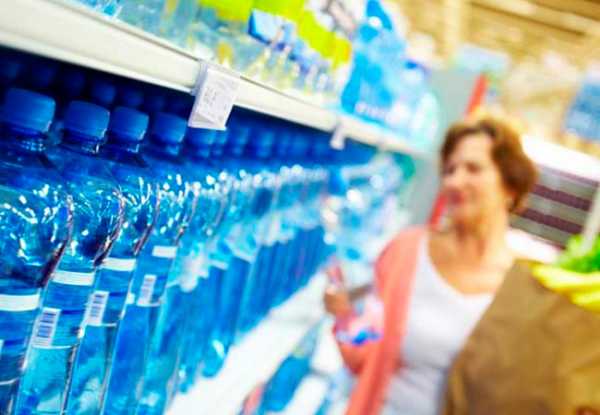
Other carbonated drinks while breastfeeding
When considering carbonated mineral water, one cannot fail to mention another type of similar drinks - sweet carbonated waters or lemonades.
Such drinking is usually always prohibited during breastfeeding and there are several reasons for this:
- The disturbed balance of substances contained in such a drink does not help to quench thirst, but to further intensify it.
- A large amount of sugar negatively affects the health of a young mother and provokes the formation of excess weight.
- If a sugar substitute is used as a sweetener, then such a drink is doubly dangerous - the substances used in such products contribute to the formation of carcinogens.
- The presence of flavors and dyes causes allergies in a baby who is breastfed.
- If carbonated water contains caffeine, then its consumption leads to the leaching of calcium in the body of mother and baby. In addition, this substance negatively affects the child’s nervous system and makes him restless, and also disrupts sleep.
All this makes sweet carbonated drinks prohibited during lactation. If we are talking about whether it is possible to drink mineral water while breastfeeding, then the answer to this question is positive.
The only exceptions are those mothers who have an excess of any minerals in the body or suffer from urolithiasis. In all other cases, mineral water in moderate quantities is not only allowed, but also recommended, since it can easily compensate for the lack of useful microelements.
mama-news.ru
Other carbonated drinks while breastfeeding
When considering carbonated mineral water, one cannot fail to mention another type of similar drinks - sweet carbonated waters or lemonades.
Such drinking is usually always prohibited during breastfeeding and there are several reasons for this:
- The disturbed balance of substances contained in such a drink does not help to quench thirst, but to further intensify it.
- A large amount of sugar negatively affects the health of a young mother and provokes the formation of excess weight.
- If a sugar substitute is used as a sweetener, then such a drink is doubly dangerous - the substances used in such products contribute to the formation of carcinogens.
- The presence of flavors and dyes causes allergies in a baby who is breastfed.
- If carbonated water contains caffeine, then its consumption leads to the leaching of calcium in the body of mother and baby. In addition, this substance negatively affects the child’s nervous system and makes him restless, and also disrupts sleep.
All this makes sweet carbonated drinks prohibited during lactation. If we are talking about whether it is possible to drink mineral water while breastfeeding, then the answer to this question is positive.
The only exceptions are those mothers who have an excess of any minerals in the body or suffer from urolithiasis. In all other cases, mineral water in moderate quantities is not only allowed, but also recommended, since it can easily compensate for the lack of useful microelements.
Maintaining fluid balance is extremely important for human health, since lack of fluid causes improper functioning of body systems and organs. Special requirements are placed on the drinking regime of nursing mothers - they need to receive additional fluid to produce breast milk.
Types of mineral water
Mineral water differs from ordinary water in its higher concentration of trace elements and minerals. The mineral is rich in iron, bicarbonate, sodium, magnesium, calcium, sulfates, chlorides and fluorides.
Mineral waters are classified according to several criteria, including:
- origin;
- degree of mineralization;
- chemical composition.
Based on its origin, mineral water is divided into:
- natural (extracted from natural sources, the deeper the occurrence, the purer the water);
- artificial (the corresponding substances are dissolved in purified water in the required concentration).
If the soluble mineral complex is precisely selected in terms of the ratio and concentration of the components, and mineralization is carried out using high-quality equipment, the artificial mineral water is identical to the natural one. Today “Essentuki”, “Borjomi” and other popular mineral waters are mainly produced artificially.
According to the degree of mineralization, water is:
- dining room (suitable for daily use) – mineralization no more than 1 mg/dm3, minimum amount of biologically active substances;
- medical dining room (intended for healthy people for the prevention of certain diseases, designed for frequent use) – mineralization from 1 to 10 mg/dm3, higher content of biologically active substances;
- medicinal (used as prescribed by a doctor during a course of treatment, not suitable for regular drinking) – mineralization more than 10 mg/dm3, high saturation with biologically active substances.
It is important to pay attention to the chemical composition of the water. The following types of mineral water are offered:
- Alkaline. Helps strengthen the body weakened by stress, useful for restoring the alkaline balance of the blood. Recommended for diabetes. If you have gastritis, you should limit your consumption of alkaline mineral water.
- Sulfate. Prescribed for people with obesity, diabetes, and gallbladder and liver diseases. Since sulfates interfere with the absorption of calcium, this mineral water is strictly contraindicated for pregnant women, children and adolescents.
- Chloride. Improves liver and intestinal function. But it is contraindicated for hypertension and arrhythmia.
- Magnesium. Helps the body fight stress, calms and strengthens the nervous system. You should not exceed the recommended intake of this water to cause stomach upset.
- Mixed. Characterized by several active components contained in small quantities. It is recommended to follow the specified consumption standards so as not to cause harm to health.
Also different are sulfide, iodide, bromide, etc. water, depending on the predominant biologically active substance and gas composition.
Harm
To increase shelf life, mineral water is saturated with gas. It is extremely harmful for a nursing mother to drink carbonated water, since dissolved carbon dioxide accompanies the secretion of gastric juice, which increases acidity. This leads to disruption of the gastrointestinal tract, provokes the occurrence of gastritis and peptic ulcers. Carbonated water, when consumed regularly, worsens the condition of the skin.
To remove gas from water, just open the bottle and wait a while. The soda fizzles out and then becomes a safer drink.
When breastfeeding
There is no clear answer to the question whether mineral water can be used while breastfeeding. Mineral water contains a complex of substances that are beneficial to the body of mother and baby during breastfeeding.
In this case, you should definitely completely refuse:
- from mineral water with gas;
- from water with sulfates.
Sulfate water is extremely dangerous for mother and child, as it prevents calcium from being absorbed. During pregnancy, a woman's bone tissue weakens, since calcium is required for the formation of the fetal skeleton. And after giving birth, a nursing woman needs to compensate for the lack of calcium by eating cottage cheese, cheeses and other healthy foods. Babies need calcium for proper growth and development.
At the same time, breastfeeding will not become an obstacle when it comes to restoring strength in the postpartum period with the help of alkaline mineral water. It is also useful for young mothers to drink magnesium water, especially if there is a tendency to postpartum depression - magnesium has a beneficial effect on the nervous system.
conclusions
The beneficial effects of mineral waters on a woman’s body during lactation should not be underestimated. But at the same time, it is important for a nursing mother to follow the rules:
- carefully study the label - water should contain a minimum of sulfates (less than 10 mg/dm3);
- exclude mineral water with gas;
- consult a doctor regarding individual indications and contraindications for drinking mineral water, especially if you have chronic diseases;
- follow the recommended schedule for drinking water (the doctor determines the type of mineral water, volume and frequency of intake).
Let's ask the doctor: is it possible to drink mineral water while breastfeeding?
During breastfeeding, it is permissible to drink only mineral water approved by a therapist and pediatrician .
There should be no contraindications for a nursing mother and child. You should also take into account the physiological characteristics of this period - the need for some nutrients increases, while others decrease.
Can it be carbonated?
Natural mineral water often contains some amount of carbon dioxide . This is the best option when the gas component has a beneficial effect on the body.
There is no need to try to get rid of natural carbon dioxide. In industrial production, the liquid is additionally carbonated artificially.
This type of drink is extremely undesirable for a nursing woman ; highly carbonated mineral water can have a negative impact on a woman’s body - milk production will decrease, the baby will be nervous, and will receive less nutrients.
It is permissible to consume highly carbonated mineral water only after first removing gas bubbles. To do this, you can slightly warm the drink, then leave it open for a while.
Without gas
This is the most suitable option for a nursing woman. The absence of excess carbon dioxide will reduce the risk of side effects.
Waters for table and medicinal purposes will replenish mineral reserves in the body weakened by pregnancy and restore the activity of the nervous, cardiovascular, and genitourinary systems.
Types of mineral waters according to chemical composition:
- hydrocarbonate;
- chloride;
- sulfate;
- complex – include any 2 or all 3 previous groups;
- gas - carbon dioxide, hydrogen sulfide, nitrogen, methane;
- with active ions - iron, magnesium, fluorine, silicon, lithium.
Water with a mineral content of 1 g/ml³ is considered table water, medicinal table water – 1-10 g/ml³, medicinal – more than 10 g/ml³. When breastfeeding, you should choose from the first 2 groups.
The main component must meet the needs of the female body. The most suitable options during lactation are waters containing calcium, iron or magnesium .
The benefits and harms of mineral water
The body’s reaction can be unpredictable, so it is unacceptable to consume large amounts of mineral water without consulting a specialist and without checking the baby’s body’s reaction to a new product. Positive and negative effects directly depend on the type of drink.
The benefits of mineral water for breastfeeding:
- Natural water can replace the vitamin-mineral complex of chemical production, while the digestibility of the active components is higher.
- Relief from constipation.
- Prevention of urolithiasis.
- Normalization of the nervous system.
- Replenishing calcium reserves in a nursing mother.
- Protection against dehydration.
- Relief from thirst.
- Weight loss.
Possible harm of mineral water during breastfeeding:
- Gases can cause bloating, constipation, diarrhea, discomfort, and as a result, disruption of the gastrointestinal tract occurs.
- The baby may be allergic to any element included in the healing solution.
- With long-term use, an excess of some minerals and a deficiency of others is possible.
- Carbon dioxide destroys tooth enamel.
- Long-term excessive consumption leads to deterioration of the skin and hair.
In what cases is use prohibited?
Contraindications depend on the specific type of drink, since the quality, chemical composition, and gas content vary. The individual characteristics of the body are also taken into account.
The attending physician may prohibit drinking mineral water due to the health of the mother or baby.
Contraindications for drinking mineral water:
- gastrointestinal diseases (for certain types);
- malfunctions of the urinary system;
- problems with the heart or blood vessels (hypertension, arrhythmia);
- metabolic disorders;
- individual intolerance to the components of the drink;
- When breastfeeding, you should not drink sulfate mineral water, which interferes with the absorption of calcium;
- It is advisable to avoid artificial low-quality analogues of natural water.
In some cases, the expected benefit outweighs the possible harm, so the attending physician prescribes a course of mineral water for a nursing mother. But only under the condition of constant monitoring of the condition of the woman and child.
How to choose the right water?
Following simple rules when purchasing a medicinal drink will help you avoid possible negative consequences of its use.
Recommendations for choosing mineral water when breastfeeding:
- Permissible mineralization is 0.1-10 g/ml³.
- Products from a well-known brand focused on quality.
- It is advisable to give preference to glass containers.
- Magnesium mineral water helps cope with stress.
- The increased calcium content replenishes the mineral reserves in the mother’s body, normalizes kidney function, and strengthens the musculoskeletal system.
- An alkaline or acidic medicinal table variety is selected taking into account the acidity of the secretion in the stomach of a nursing woman.
- The presence of artificial carbonation is undesirable.
- Dyes and flavoring additives are prohibited during breastfeeding.
A low price is a sign of low quality and counterfeit. Extraction of natural mineral water, its purification and packaging are expensive processes.
Admission rules
How to drink mineral water correctly while breastfeeding:
- When choosing a product, consult your doctor;
- try the drink for the first time according to the rules for introducing a new product;
- adhere to recommendations for the volume of daily servings;
- drink mineral water in the first half of the day, unless another regimen is prescribed by your doctor;
- distribute the daily volume into several doses, rather than drink at one time;
- Monitor your own well-being and note changes in the baby’s behavior.
How to try it for the first time?
Like any food product, mineral water should be administered according to the rules. This will help avoid side effects for the nursing mother and baby.
Basic recommendations:
- It is advisable to try the drink no earlier than a month after giving birth;
- introduce only one product per day;
- for the first time, it is enough to drink from a few sips to half a glass of water;
- it is advisable to introduce mineral water in the first half of the day;
- record a new drink in your breastfeeding diary;
- closely monitor the condition of the baby and your own well-being;
- record any changes in a diary;
- increase the dosage gradually;
- If you feel unwell, exclude the drink from your diet.
If you have chronic diseases, consult a therapist or specialist.
Subsequent consumption
It is advisable to drink no more than half a glass of mineral water for the first few days, unless otherwise prescribed by your doctor.
The maximum daily volume of table mineral water is 2 tbsp. , for treatment and prophylaxis – 1 tbsp.
If the drink contains an increased amount of active ingredients, it is recommended to drink in courses of 2-4 weeks, then take a break.
Daily consumption of any mineral water for a long period of time is undesirable.
Conclusion
When breastfeeding, it is allowed to drink table and medicinal table mineral water with a mineralization index of up to 10 g/ml³ . It is recommended to discuss the choice of a specific type of drink with the nursing woman’s therapist and the pediatrician observing the baby.
Administer the product with caution, strictly adhere to the dosage regimen, and do not exceed the maximum daily intake (1-2 glasses).
Medicinal table mineral water is allowed to be included in the menu no earlier than a month after childbirth; it is better to wait up to 3 months. Be sure to make an entry in the nutrition diary of a nursing woman.
Give preference to varieties without gas or remove excess carbon dioxide before use.
Source: https://o-vode.net/kakaya-byvaet/mineralnaya/kak-pit-mineralku/pri-grudnom-vskarmlivanii





